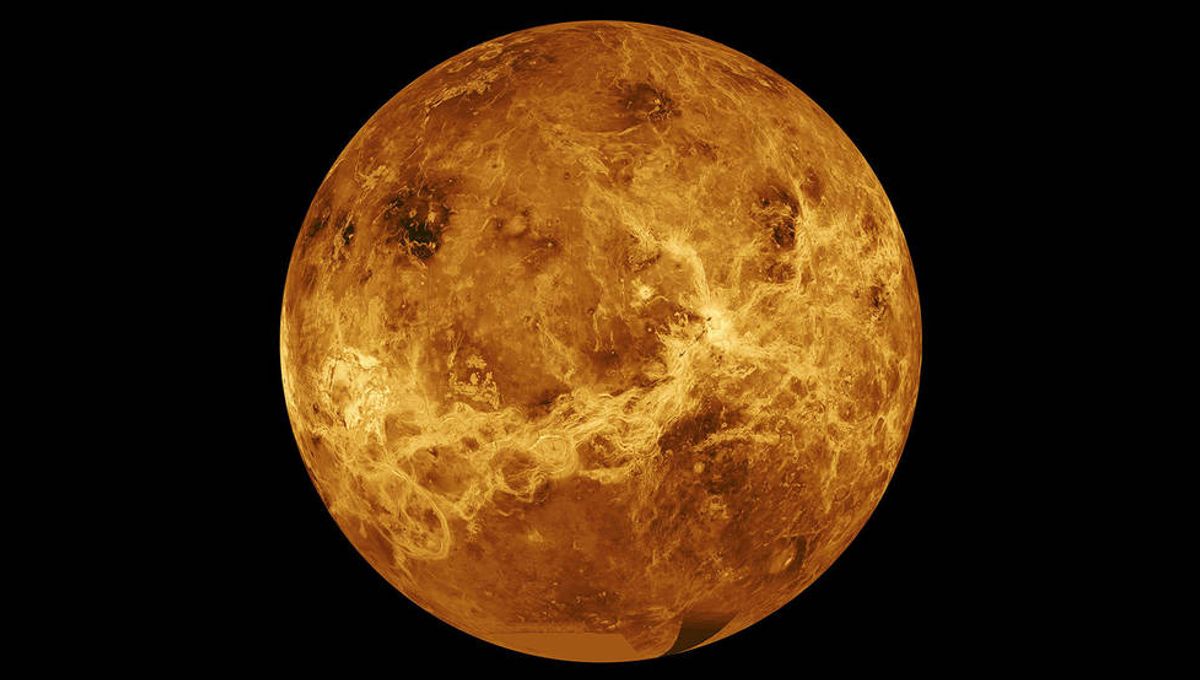
Defining how hot or cold a planet is can get complicated. Just take Earth as an example. The temperatures in the tropics are definitely different from the temperatures at the poles. Variations in temperature, even extreme ones, are common both in the atmospheres and at locations across the planets.
But if we are looking at averages, there is an unbeatable champion of high temperature: Venus. The second planet from the Sun has an average temperature of 464°C (867°F). That’s hot enough to melt lead, and the Soviet mission that manage to land on the planet did not survive long.
Why Is Venus The Hottest Planet?
So Venus on average is hotter than even Mercury, the closest planet to the Sun. And it’s all the fault of its cloud cover. The Venusian atmosphere is about 100 times thicker than Earth’s, made of carbon dioxide with clouds of sulfuric acid.
Long ago, the whole planet experienced a devasting greenhouse effect that created an oppressive metal-melting world. If you were standing on its surface you’d be burned, melted, and crushed all at the same time. Definitely not the best location for a vacation spot.
A Place In The Sun
While no other planet can compare to Venus in terms of average temperature, if we are looking for location-specific stuff, we have a vast selection of places to pick from. The outer atmospheres of planets, including the Earth, can reach thousands of degrees. This layer is known as the thermosphere.
The reason why it is so hot is because of the Sun. That region of the atmosphere receives a huge amount of radiation – although, the density is often so low that the heat transfer is not very efficient. That is very good news for the International Space Station, as it orbits right through the Earth’s thermosphere.
There are also volcanos to consider. Not just on Earth, but also on Io – the innermost moon of Jupiter. Larger than our Moon and covered in volcanos, it has lava coming out at an incredible 1,600°C (over 2,900°F). That’s hotter than any lava here on Earth. And yet, due to the lack of atmosphere on the Jovian moon, the average temperature is well below zero.
The Hottest Known Planet
If we want to find hotter planets than Venus, we have to look far beyond the solar system – 670 light-years away, to be exact. As of November 2022, the hottest known world is an exoplanet called KELT-9b. It orbits extremely close to a star almost twice as hot as our Sun. It has an average temperature of 3,800°C (over 6,800°F). That is hot enough to melt tungsten, the material used in filament light bulbs.
It is tidally locked to its star, so one side always faces it. The perennial day side has temperatures hundreds of degrees higher than the planet’s average – hotter than many stars, almost as hot as our Sun’s surface. The thermosphere of this planet is likely going to reach the same temperature as its star surface.
There might be hotter worlds out there, but this is certainly a tough record to break.
Source Link: The Hottest Planet In The Solar System